Interview With Dr. DeAnna Beachley
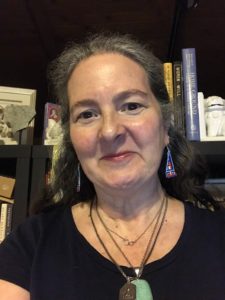 Dr. DeAnna Beachley is a very colorful woman! (Just look at her collection of socks below!) She’s a professor of history and women’s studies, a visual artist (photos of her work grace the interview), and poet. More recently, DeAnna has begun to see herself as an essayist–and a wonderful essayist she is, I might add! We met virtually about a year ago in a workshop led by Ana Maria Spagna, who has been a mentor to us both. We continue to Zoom together every other Thursday with three other women in a wonderful writing group–which is also a time for lots of heart-to hearts. Please join DeAnna and me as we talk about teaching, art, feminism, jewelry, Tarot, and, yes, socks!
Dr. DeAnna Beachley is a very colorful woman! (Just look at her collection of socks below!) She’s a professor of history and women’s studies, a visual artist (photos of her work grace the interview), and poet. More recently, DeAnna has begun to see herself as an essayist–and a wonderful essayist she is, I might add! We met virtually about a year ago in a workshop led by Ana Maria Spagna, who has been a mentor to us both. We continue to Zoom together every other Thursday with three other women in a wonderful writing group–which is also a time for lots of heart-to hearts. Please join DeAnna and me as we talk about teaching, art, feminism, jewelry, Tarot, and, yes, socks!
Diane: Hi, DeAnna. I’m so glad you agreed to do this because you’re such an interesting woman.
DeAnna: Thank you.
Diane: Tell me how you would describe yourself. If somebody said, “Okay, DeAnna, we want to know about you.” What would you say?
“We Wear Different Masks at Different Times”
DeAnna: That’s always a good question. I’d describe myself as primarily a teacher and a writer. My academic preparation is different from my creative life, for sure, but I try to find ways to integrate all those different parts together in one package. We all do that anyway—we’re all our whole package. It’s just often we wear different masks at different times, and I’m trying not to have that mask on for all the different parts.
Diane: I love that. You didn’t say we wear different hats. You said, “We wear different masks.” And I think that’s probably more accurate.
Tell us about your academic life. You’re a history professor?
DeAnna: Yeah. I teach U.S. History and Women’s Studies, and right now I’m working on a biography of a Nevada suffragist, Anne Henrietta Martin, who worked in the State of Nevada helping to get Nevada women to vote. She became involved in the national movement and then ran for the Senate in 1918 and again in 1920. She lost both times. She was very active in the Women’s International League of Peace and Freedom and worked with Jane Addams. That academic side ties together the history with the Women’s Studies in a lot of ways.
Diane: You’re a feminist through and through?
DeAnna: I am a feminist. I am always learning and striving to be a more intersectional feminist, to consider women of color and positionality and the ways in which race and class intersect with gender issues.
Diane: Are most of your students college age?
“More Handholding Is Required Now for Younger Students”
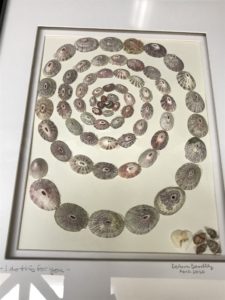 DeAnna: I’m at a community college. I teach the introductory level women’s studies and introductory history classes. And then every once in a while I get to teach a 200 level history of the women’s movement class for women’s studies. That’s a lot of fun.
DeAnna: I’m at a community college. I teach the introductory level women’s studies and introductory history classes. And then every once in a while I get to teach a 200 level history of the women’s movement class for women’s studies. That’s a lot of fun.
Diane: How long have you been teaching?
DeAnna: I’ve been teaching since 1992.
Diane: I’d love to hear your perspective on the changes you’ve seen in college-aged kids over the years.
DeAnna: It’s really interesting. When I first started at my community college in the early nineties, the average age of our student was around 27. There were a lot of non-traditional students. I was teaching students who were my age. Some of them were older, and that was a really eye-opening place to be. That’s changed dramatically. The average age is now 23 at my school. And most of the students taking on-ground classes, tend to be younger. Online students tend to be older. Not that we see them online. But you can tell based on what they’re talking about and how they’ve introduced themselves.
Diane: Are they more aware of issues?
DeAnna: Older students tend to have life experience and understand more of why you perhaps are asking them to do certain things. There’s a reason I’m asking you to read this assignment or write this paper. Not so much with the younger students. But I also think some of the expectations have changed for students over the years. It seems more handholding is required now for younger students.
“When I First Started Teaching, There Were a Lot of Students Who Would Consider Themselves Activists. … Now It’s Back Again”
Diane: They’re less independent?
DeAnna: They seem to be. And they’re also less willing to do the work if they don’t see any value in it. That has been a real challenge, particularly this past year teaching remotely–how to structure assignments that provide meaning, so students will be willing to complete them.
Diane: That’s interesting. I wonder if the generations are becoming any more open.
DeAnna: That’s happens in waves. When I first started teaching, there were a lot of students who would consider themselves activists. They were aware of political issues and then that kind of disappeared for a while. Now it’s back again. That’s kind of fun to see that.
Diane: I was going to say that would be exciting. Hopeful.
DeAnna: In the history class, for example, I intentionally select readings that are written by younger scholars, scholars of color, scholars who are not the usual scholars. The discipline itself has changed so much from when I was in graduate school becoming a historian. That is also very exciting.
They’re reading things about Native American history and things about women’s history and about labor and prison reform and racism and violence that have persistently been in our United States history. Issues not usually talked about because of the constraints of the K-12 system. They’re very responsive to that. And in my women’s studies class, the same kind of thing. I have them read essays talking about current situations, like Tressie McMillan Cottom’s essay “Black Girlhood, Interrupted” about R. Kelly from her book Thick.
“I’m Also Interested in Art and the Way Art History Interplays with Events”
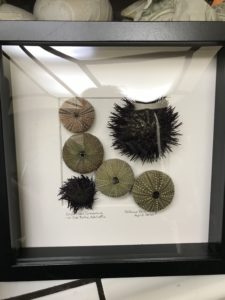 Students got all excited about that. Last semester I found a great article by Minh-Ha T. Pham on the pandemic and mask making. Pham talks about how white women are making masks, as a new kind of Rosie the Riveter, and yet, there is this other side of the industry, where mostly women of color are making masks for the textile industry and getting paid far less for their labor. Pham wants people to think about the implications of our fashion choices, to look at the way fashion shapes who we are and how often we don’t know a lot about the industry.
Students got all excited about that. Last semester I found a great article by Minh-Ha T. Pham on the pandemic and mask making. Pham talks about how white women are making masks, as a new kind of Rosie the Riveter, and yet, there is this other side of the industry, where mostly women of color are making masks for the textile industry and getting paid far less for their labor. Pham wants people to think about the implications of our fashion choices, to look at the way fashion shapes who we are and how often we don’t know a lot about the industry.
Diane: So why history?
DeAnna: That’s also an interesting question. As a child, I was always fascinated with what the adults were talking about. And I can clearly remember sitting on my great-grandfather’s knee, in the kitchen of the farmhouse in Western Pennsylvania. I was very quiet. They would forget I was there, and their conversation would turn to all different things. Sometimes it was about people who had died or people who had moved. I think that might be part of it.
And then in fifth grade I had a great teacher, Mr. Spencer. I distinctly remember him asking us to write as if we were Revolutionary War soldiers with George Washington.
That sparked an interest in history. But I’m also interested in art and the way in which art history interplays with events and how historical circumstances change the way in which people paint and how they see the world.
Diane: That’s fascinating.
DeAnna: I was originally going to teach art in K-12.
“When I Was An Undergraduate, There Was Only One Woman Who Was a Full-Time Professor at the College I Went To”
Diane: Do you paint?
DeAnna: Yeah. I paint, I draw, I take photographs.
But when I started taking education classes, I realized this is not for me. So I changed my major to art history, and then I had a studio minor and a history minor. I went on for my master’s degree and PhD in history.
Diane: And were you one of the only women in the PhD history program?
DeAnna: There were a few women. There are way more now. When I was an undergraduate, there was only one woman who was a full-time professor at the college I went to.
Diane: What sparked you to do women’s studies?
DeAnna: By training I’m a cultural historian. When I taught my first semester, the chair of the department asked if I would teach a women’s history class that hadn’t been taught in like 10 years. And I’m like, “Okay, give me a year to prepare.” So that next fall I started teaching women’s history and I loved it because there was just so much interesting scholarship going on. There were a lot of things that I never learned when I was an undergraduate.
And I’m like, “I’m going to keep doing this.” And then a group at the college asked for and put together a women’s studies program. I started teaching the history of the women’s movement class and the introduction to women’s studies. And I love it. I will not give that up because it feeds me. And I always will fully integrate women and minorities into history. Because that’s all part of the story, and it is great to have women as the central focus. The discussions you can have are just so much fun.
“The Boys Were All Writing Haiku About Gale Sayers. And My Haiku Was About My Mother Washing the Dishes”
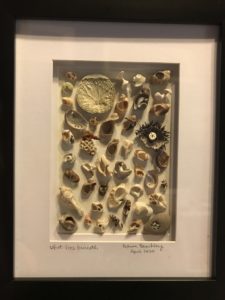 Diane: Do young men take your class?
Diane: Do young men take your class?
DeAnna: Absolutely! And it’s been really interesting to see the discussions we’re having in the online classes I’m teaching. When a female student shares a vulnerable story, the young men students are like, “I hadn’t thought about that. Thank you so much for sharing. That so wrong.” It’s so beautiful and incredibly encouraging.
Diane: Very. So why poetry and when?
DeAnna: Well, I always wrote poetry. I still have the little booklet of haiku from Mrs. Bowers’ second grade class. She had us write haiku and made little mimeograph booklets. The boys were all writing haiku about Gale Sayers. And my haiku was about my mother washing the dishes. In high school and college, I did some some writing, but when I turned 38, I started turning more and more to poetry.
It’s that time in a woman’s life where things are settled in some areas. And you’re ready to break out and say things need to be different. And for me, it was creative and a spiritual journey too. Those coalesced for me. And so I did a free poetry workshop in one of the public libraries and it was delightful. It was what I needed and came along at the right time, the right place. Then I just kept doing workshops and going to conferences and then sending work out sporadically.
It’s almost 20 years since I started that, and the urge to write and to perhaps send out more work is stronger. There’s much more dedication than there used to be.
Diane: You mentioned your dad was in seminary. What religion?
“I Was Expected to Act a Very Particular Way. My Brothers Had a Little More Leeway”
DeAnna: I was raised Church of the Brethren, which is a small Protestant denomination. It’s one of the Anabaptist traditions out of Germany. It’s connected with Menno Simons in the Mennonites through sort of that vein. And we’re considered one of the traditional passivist churches.
Diane: I did an interview with Greta Holt, another woman who’s an Anabaptist. I love the social justice focus.
So what was it like being a minister’s daughter?
DeAnna: There are two ways of being a preacher’s kid, preacher’s daughter particularly. You’re either the total goody two shoe, or you were the total-
Diane: Wild child. Right?
DeAnna: Wild child. I kind of straddled the middle, but I was also the middle child in my family. So I’m used to that role. It was tough. My mom and I would have conversations about how the expectations for me and my brothers were very different. I was expected to act a very particular way. My brothers had a little more leeway.
Diane: And you would talk about this with your mom.
DeAnna: We talked a little bit about that.
Diane: Maybe seeds of feminism were planted.
DeAnna: There were a whole lot of seeds planted in those years for sure. You were always being watched. You were always being monitored for what you wore, what you said, who you dated.
Diane: So now you’re the preacher’s daughter living in Vegas. And how does one like you survive in Vegas, or am I just thinking of the strip?
“I Wrote My Dissertation While Teaching Five Classes a Semester. Don’t Ask Me How I Did That”
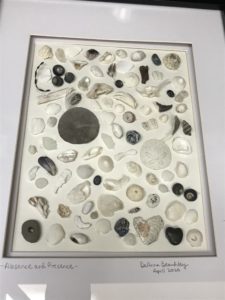 DeAnna: Well that’s often because that’s what Vegas is known for. I moved to Vegas because of the job at the community college. A colleague of mine who was in the PhD program with me at Northern Arizona University said, “Hey we’ve got this full-time position coming up. I think you should apply.” So I did, and I got it. I moved to Vegas in the summer of 92 in a car that almost overheated because the air conditioning stopped working.
DeAnna: Well that’s often because that’s what Vegas is known for. I moved to Vegas because of the job at the community college. A colleague of mine who was in the PhD program with me at Northern Arizona University said, “Hey we’ve got this full-time position coming up. I think you should apply.” So I did, and I got it. I moved to Vegas in the summer of 92 in a car that almost overheated because the air conditioning stopped working.
It’s almost 30 years. And I wrote my dissertation while teaching five classes a semester. Don’t ask me how I did that. I was a lot younger. I think that’s part of it.
So here I am. I’ve made my peace.
Diane: One of the things I know about you is you have a love for nature. Is it all birds or just condors?
DeAnna: It’s all birds, but I have particular favorites. I love ravens. I’ve written poems about Ravens.
Diane: You’re in good company then!
DeAnna: I’ve written poems about owls as well. And that’s one nice thing about being in Las Vegas. We have Red Rock Canyon, which is now a national conservation area. There are a lot of trails. It’s great to hike in the wintertime, in the spring and fall, but not in the summer. Usually about mid-April it gets to the point where, unless you get up at six o’clock in the morning, you can’t hike.
We have Mount Charleston. We’re not far from many other national parks, like Death Valley, Zion, Bryce Canyon, and the Grand Canyon.
Diane: And you also have a thing for words and losing words. Why are language and words so powerful for you?
“It Greatly Saddens Me When We Lose a Lot of Words and Truncate Our Vocabulary to the Artificial Realm”
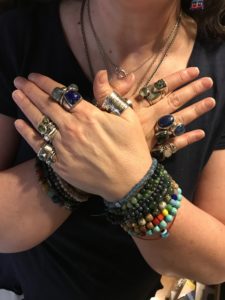 And so it greatly saddens me when we lose a lot of words and truncate our vocabulary to the artificial realm. That’s why in my poetry, I will often incorporate words that not many people know about or use words that might be a more archaic way of saying something.
And so it greatly saddens me when we lose a lot of words and truncate our vocabulary to the artificial realm. That’s why in my poetry, I will often incorporate words that not many people know about or use words that might be a more archaic way of saying something.
Diane: I can’t interview without asking you about your fashion choices. You and I are in a Zoom writing group that meets every two weeks. You’re out there! Your colors! Bright and alive. Very unique. You also have at least a thousand bracelets on right now.
DeAnna: I’ve got, let’s see, one, two, three, four, nine, 16 bracelets.
Diane: 16 bracelets. How many rings?
DeAnna: About 20.
This is a more recent incarnation for me–the bracelets, necklaces, and rings. About the same time as my poetry writing, it started with, “Oh, well, I like this.” And so I’d buy another ring and then I buy another ring. And the next thing I know, if I’m fully decked, so on one finger there can be like four rings. Some of them are really thin, but they’re all natural stones. I have amethyst on right now. I have a lapis ring on, I have a moldavite ring, a seraphinite ring, a kyanite ring, a Ruby, and then moonstone and diamonds.
“It Takes Me as Long to Bedeck Myself with Bracelets and Rings as It Would If I Put Foundation On”
Diane: What’s that about? I love them, but what does it mean to you?
DeAnna: I don’t wear makeup. I consider this my makeup. It takes me as long to be deck myself with bracelets and rings as it would if I put foundation on and-
Diane: Wait a second. You change them every day?
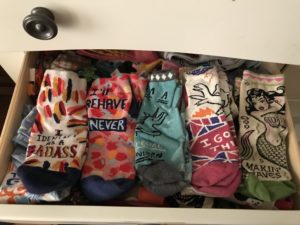 DeAnna: I alter one or two of the bracelets every day. But the rings have pretty much stayed the same this year. I didn’t wear them for a long time when we were in full lockdown. Last April, for example, I barely wore my rings and felt naked.
DeAnna: I alter one or two of the bracelets every day. But the rings have pretty much stayed the same this year. I didn’t wear them for a long time when we were in full lockdown. Last April, for example, I barely wore my rings and felt naked.
Diane: I have to say that I noticed more of them on you recently. And then I said, maybe I just didn’t see them before.
DeAnna: This is a really funny story. A number of years ago, when my dear grandmother was still alive, one of my cousin’s kids was visiting. She was probably seven at the time. And she goes, “how many rings do you have on?” And I said, “Well, let’s count them and see.” So we counted all the rings. And then she asked, “Is this as many times have you been married?”
Diane: Oh, that’s adorable.
DeAnna: I told my grandmother that, and I thought she couldn’t breathe. She was laughing so hard.
Diane: That’s so cute. And your socks.
DeAnna: Yes. My socks. All of my socks. Four drawers full of socks.
Diane: Give us some examples of what they say.
DeAnna: Let’s see. I’m too busy for this shit. Yes, wine. I have one pair that on the bottom, say, if you can read this, bring me a glass of wine. There’s, you’ve got this. This girl’s got a lot to say. Oh, kale is in everything these days, even socks.
“If There’s a Particular Question, I’m Pondering a Lot, I will Pull Out the Tarot Cards”
They make me laugh. There’re a lot of fun.
Diane: They are. That’s great. Anything you feel like we missed?
DeAnna: Do we want to talk about menopause?
Diane: Sure!
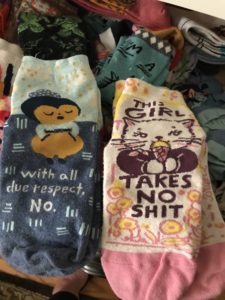 DeAnna: I think it’s incredibly important for all women to understand this natural process we go through that we learn so little about. Oh my Lord, it’s awful that we don’t know about these natural changes.
DeAnna: I think it’s incredibly important for all women to understand this natural process we go through that we learn so little about. Oh my Lord, it’s awful that we don’t know about these natural changes.
Diane: It’s so true. You know, I haven’t had a post devoted to menopause, which is pretty weird considering the name of the blog. I really also wanted to ask you about the tarot.
DeAnna: You’re going to laugh about this because before we met today, I gathered a number of my tarot decks. I’m actually taking a class on the tarot right now and we’re using the Radiant Ryder Waite deck for that. But the person that I take the class from usually uses the Morgan Greer tarot, which is really quite lovely. The first deck I bought for myself was the Goddess Tarot, which is has some really nice images in it.
Diane: I recently got the Crow deck. It’s so beautiful. I love it.
How do you use the tarot?
DeAnna: I do spreads for myself. If there’s a particular question, I’m pondering a lot, I will pull out the cards. Usually, I’ll do a three-card spread, sometimes a full spread if I think I need to do more than just three.
Diane: Sometimes I start out with a three-card spread and if I’m not happy with the ones I pick, I move to the Celtic cross!
DeAnna: But then those same cards, keep showing up.
Diane: Isn’t that just how the universe works!
What’s next for you?
“We’re All Interconnected. Whether We Realize It or Not. All of Us Come from the Same Star Stuff”
DeAnna: What’s next for me is some writing, some editing and submitting, and hopefully getting some good news. Right now, I’m shopping a poetry manuscript around. I have been shopping this poetry manuscript around since 2016. But I’m really hoping to carve some time out, as soon as the semester’s done to delve a little more into essays.
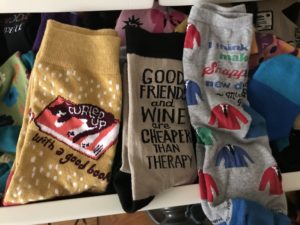 Diane: What do you think of growing older?
Diane: What do you think of growing older?
DeAnna: The pandemic, the quarantine, the whole being at home this past year has really changed some things for me. One is I’m growing my hair gray instead of covering it up with color. And I like it. Not so pleased about the neck wrinkles, but there’s not a whole lot you can do about that. I’m finding it’s such a bizarre thing. I think about my grandmother and at my age, she was already a great grandmother. I can’t even fathom that. I don’t feel old. There are days when I feel achy and creaky and my back goes out, but I don’t feel like I’m almost 60.
Diane: Do you feel you have more freedom now?
DeAnna: Yes, I do. I definitely feel that. It’s been an interesting kind of exploration with my poetry writing. And the things I’m doing to try and take care of myself. My voice is deeper than it used to be. And I like that. And it’s not because I smoke, although I did do that for a little while.
I could use the cliche it’s wisdom that comes with experience, but I just feel more in tune with my personal rhythms, and I have an easier time seeing my small place in this vast universe and how we’re all interconnected. Whether we realize it or not. All of us come from the same star stuff.
“I Can’t Believe This Is the First Time I Dropped a Swear Word”
Diane: Isn’t it beautiful when you realize that?
DeAnna: You can let go of so much shit. I can’t believe this is the first time I dropped a swear word in here because usually I …
Diane: Oh no. You did before too.
DeAnna: Usually, it’s much more than that.
Diane: Oh, you and me both! So this has been wonderful. Is there anything else you want to say or?
DeAnna: No. I would like to do the same thing for you so I can learn all about Diane. I know a lot from the essays and things that I read of yours.
Diane: Maybe little too much!
DeAnna: No, no, no. Never, never, never. It’s been so delightful to get to know you through the writing group.
Diane: I feel the same. I really do. It’s been wonderful. So thank you so much again for doing this with me today.
As always, I’d love to hear from you. Please leave a comment or send me an email.
See you July 19th!
XOXO
Diane




Great interview, DeAnna!
I love the way DeAnna is able to integrate different disciplines and interests in a way that works for her. Such an interesting person, who has also been able to embrace fun! I have that book by Tressie McMillan Cottom, but haven’t had a chance to read it yet. The interview reminded me that I have a set of goddess cards too, that I was gifted many years ago.
Thank you, Diane, for this enjoyable & inspiring interview.
PS I recently read your informative post on Rejection- with which I could definitely identify- but never made it back there to contribute to that discussion.
Yes to all those wonderful things about DeAnna, Sarita! And the book Thick–I have it too and speaking with DeAnna inspired me to start reading it!
And rejection! I think everyone can relate to rejection! I’m glad you enjoyed the post, my friend!
I absolutely love the below exchange. So, so much. XOXO
Diane: Do young men take your class?
DeAnna: Absolutely! And it’s been really interesting to see the discussions we’re having in the online classes I’m teaching. When a female student shares a vulnerable story, the young men students are like, “I hadn’t thought about that. Thank you so much for sharing. That so wrong.” It’s so beautiful and incredibly encouraging.
Right, Alison!! It just makes my heart sing! XO
It is one of my favorite parts about teaching!!!!
What a fascinating interview- thank you both for sharing.
Thank you for reading, Cynthia!
Thanks to Diane for asking such good questions!
Awww, DeAnna! You made it easy!!
heart heart heart!
What a fun interview! I would have never thought of wearing jewelry instead of foundation!
And the socks!
And her writing!
Thanks!
Thanks, Nicky! Jewelry as make-up! Socks! Her writing! DeAnna is a fascinating woman!